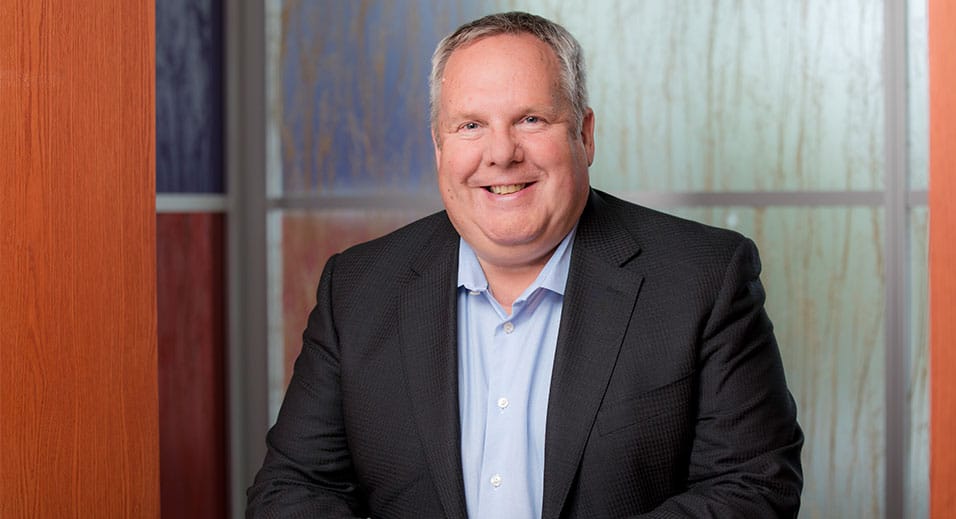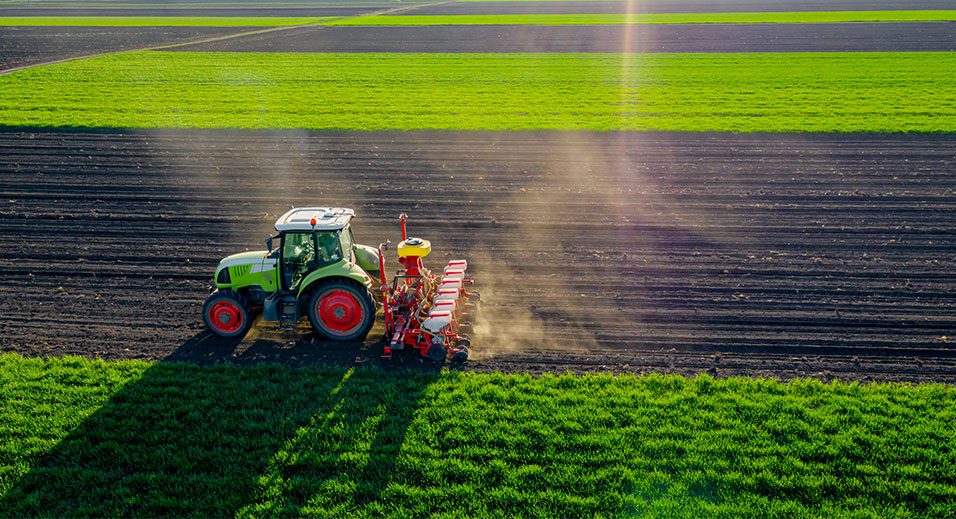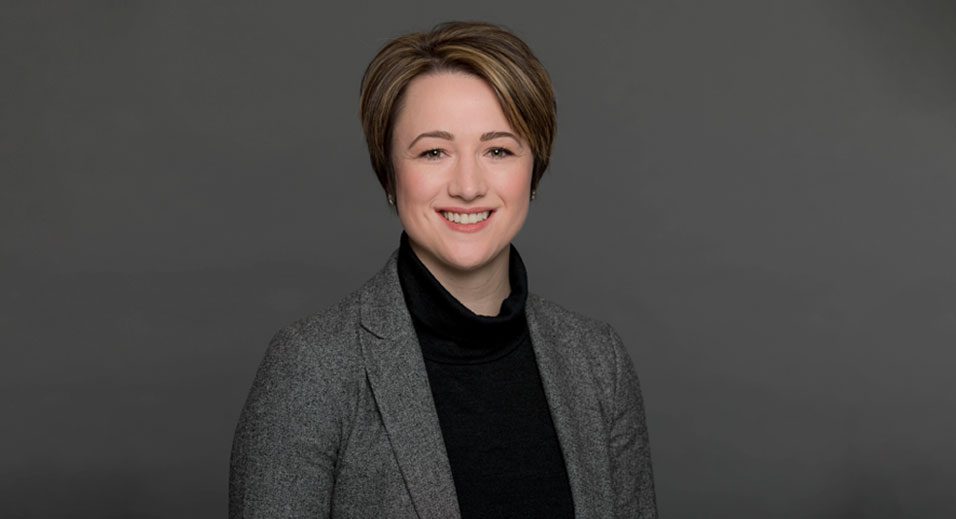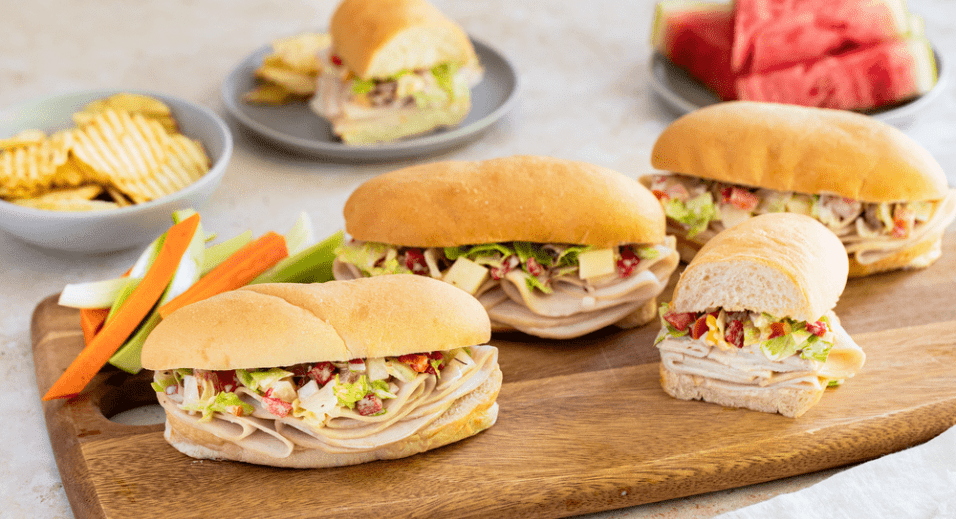As the self-proclaimed Swiss Army Knife of Maple Leaf Foods, Iain has advanced throughout the organization to take on new challenges within talented teams for the past 25 years.
Iain Stewart is our Chief Supply Chain Officer, focused on leading the operations, engineering, purchasing and supply chain functions. With more than 25 years in the food industry, Iain has been part of Maple Leaf Foods since 1997. He began his career as a Pricing Manager and over the course of 25 years, has taken on a variety of roles spanning a multitude of functions to help support and advance the organization.
Joining the Senior Leadership Team in 2010 as Senior Vice President of Fresh Meats, Iain led both the Pork & Poultry Operations, then focused solely on the Pork business in 2014, and moved into his current role leading operations and supply chain in 2019.
Iain says he’s been lucky to work in many different areas of the business. He’s found when joining a new department that there’s always much more talent on the team than he ever realized, which taught him that Maple Leaf Foods has deep (and often quiet and humble) talent on its bench. In reflecting, Iain is glad he had the courage to make a jump into different role and departments because it helped him develop and learn new skills, which has served him well at Maple Leaf Foods. This is also a key strength of Maple Leaf Foods in being willing to take chances on leadership development.
You’ve referred to yourself as the Swiss Army Knife of Maple Leaf Foods because you have filled so many roles and exemplify strong characteristics of a leader. Which has been the most challenging or interesting for you?
I think the most challenging role would have been in food safety. When we went through our Listeria recall in 2008, I was asked to step in and help. I really didn’t know a lot about food safety at the time and it was a high-risk position because as a company, we were trying to understand a new paradigm and come up with some solutions that weren’t really well known outside of the company. We had to generate a lot of processes on our own and invent a few new things. It was a really challenging time, but incredibly rewarding as well.
Your new role recognizes your strength as a great leader — how did you develop those leadership skills and qualities?
I’ve been moved into a lot of different roles at Maple Leaf Foods and one of the things I was fortunate enough to learn early in my career is that what really drives me is needing a challenge. Challenges aren’t something I simply like to do – they are something I really need to have.
As a result of that, I decided that when I had the option to take a role that I knew nothing about, it would be the one to take. I’m an avid learner and I knew that if I took on new positions, I’d work really hard to get up to speed. I felt pretty comfortable that I could help make a difference. It also helps that the organization was willing to take chances on individuals by putting them into challenging roles that they might not have previous experience in!
When you’re constantly changing into new roles that you know nothing about, the only thing you can take with you are the leadership skills you develop along the way. You’re not taking any knowledge because you don’t know anything about it. It’s an outcome that I look back on now and think “that’s really fortunate.”
What is the operational excellence system we call The Maple Leaf Way and how will it be different than the way we’ve operated in the past?
We have an operations excellence system that we’ve been gradually rolling out and it’s a way to streamline operations, to tie in what our strategy deployment is all the way down to performance management, and then down to line level and high-performing teams.
It’s about how we work as a group with the understanding that frontline workers can make a really big difference in the overall performance of a company as long as we’re all lined up to go in the same direction toward the same goals.
OES tends to be a 10-year journey. We’ve been at it for about five years. We’re going to try and accelerate that journey here over the next couple of years to get us a bit ahead. I’m quite excited about it and the fact that we’ll be able to take it all the way down to our frontline folks. It can build their careers and give them opportunities that may not currently exist in the company. It’s very good for the company and for our people — that’s something that’s really important to me.
How do you measure success in operational excellence? What do you hope for in five years?
For me, OES means: The entire company is executing the strategy in the most aligned way with the right number of resources, and in the fastest way possible. That would be what success looks like: really good planning, resource management, and working on key items faster than we currently do.
In five years, I would hope that we’d have even more value coming out of our plants than we currently do. I believe there’s a big opportunity there and I think our people, especially our frontline folks, would have a lot more understanding of the strategy and commit to helping us be better. I believe we’d be an exceptional place to work.
The recent announcement indicated that you will be creating a One Maple Leaf talent strategy. Is there anything you can share about that?
The key is this: if you standardize everything, then your people can jump from role to role, function to function more easily, creating more lateral opportunities to move around the company. Based on how fortunate I’ve been in being able to change roles, I think it can give them much more energy in the company.
What advice do you have for people just starting or building a career at Maple Leaf Foods?
There are two things I believe are beneficial to somebody who decides to work at Maple Leaf Foods.
The first is that you should have an opinion and you should be willing to put that opinion on the table. As a company, we could do a better job at creating the environment to get those opinions shared. I think having an opinion at Maple Leaf Foods is a positive thing if you want to grow here, both as a leader and as somebody who works with talent.
Secondly, this is a company that understands that in reaching for success, sometimes we’re going to fail. And the key at Maple Leaf Foods is to try not to fail the same way twice. But failure is okay here — you’ll always get another chance. Have the courage to take some of those leaps, even if you may fail.
To help us get to know you better, can you tell us — if we walked into your living room right now, what unusual or interesting item would we find?
The thing people would notice is all the vinyl records I own. I’m a big music fan. The stereo system I invested in is designed to work best with vinyl versus digital. With my trips to Japan when I was running the global business, I’d buy lots of records there and bring them back so I’m pretty much across the map. The majority of genres I have are jazz and blues, with a fairly good selection of rock. I have 1,648 albums.
Books offer great insights into people. What book are you reading right now?
Right now, I’m reading Dead in the Water: A True Story of Hijacking, Murder, and a Global Maritime Conspiracy by Kit Chellel and Matthew Campbell. It’s nonfiction about cargo shipping and is a murder mystery mixed with an explanation of how big tankers carrying shipping containers work worldwide. It’s actually pretty good — I’d recommend it.



